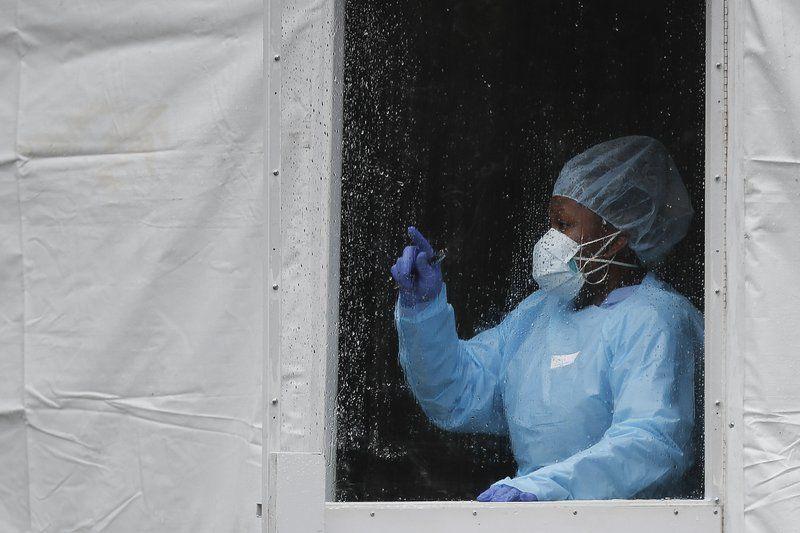
This is a moment in time that we should never forget. There are still many unknowns about how widespread and over what time frame the coronavirus will impact ourselves, our country and our planet. While we all wait for answers, physical distancing is absolutely critical until this deadly virus spread-curve flattens, testing is wide-spread and our healthcare system can gauge how capable it is to handle this pandemic. Physical distancing is an effective, low-tech and relatively small sacrifice that every one of us can and must do now to slow the spread of this highly contagious virus. Whether it’s weeks, months or potentially a year or more, we have no option but to self-quarantine for as long as it takes.
This is also truly a teaching moment to take very serious stock in our personal and civil priorities with respect to what is truly critical to the future of our public health and civilization, as this will not be the last pandemic. The coronavirus is far worse than the “common flu,” which results in an average of 50,000 deaths in the U.S. and as many as 650,000 deaths worldwide every year. It’s likely that the current pandemic will cause more widespread death than any pandemic that we’ve experienced since the Spanish Flu in 1918.
The coronavirus pandemic is a worldwide public health crisis that comes as no surprise to many public health professionals. Sadly, the public health field of study and it’s many critical evidenced-based concerns regarding a slew of vital environmental and social policy consequences on public health have largely been ignored for decades by many, including our federal and state elected officials.
Look no further than the consequences resulting from bad public policy related to air quality and asthma, water quality and lead poisoning, unrestricted access to handguns and military style-assault weapons and gun violence, as well aggressive marketing and over prescribing of opioids and the opioid overdose epidemic, to name a few, as proof that bad public policy results in bad public health outcomes.
Today and everyday 100 Americans die and 150 more are injured from largely unregulated firearms. That’s an average of 40,000 gun deaths and 150,000 injuries a year and this public health and safety epidemic has been raging for decades. More Americans have been killed from firearms since 1975 (more than 1.4 million people) than all U.S. service men and women killed in all foreign wars combined. Meanwhile, 170 Americans die every day from opioid-related overdoses. In 2019 there were 72,000 overdose deaths and roughly 10 times more overdose reversals. Last year alone, the number of overdose deaths would have been closer to 600,000-700,000 opioid-related deaths but for the overdose-blocking drug Narcan. Just these two examples of bad public policy resulting in bad public health outcomes and more than 250 largely preventable deaths every day combined, is due to our prioritizing special interest greed and politics over public health and safety.
Unlike the gun violence and opioid epidemics, which combined total more than 250 deaths each day in America, now that approximately “only hundreds” of Americans have died from COVID-19, public health policy has already changed dramatically and finally the president and Congress are no longer treating the novel coronavirus as business as usual. One can only imagine how many lives could have been saved if the president didn’t initially discount and downplay coronavirus “as just the flu” and “there’s nothing to worry about” or we took or if Congress took an equally proactive evidenced-based approach years ago to public policies necessary to reduce preventable gun, opioid and environmental contaminant deaths.
Confronting the coronavirus will likely take months and years versus weeks to reasonably contain and prevent. It’s beyond belief that we’re only just beginning to mass-manufacture test strips never mind therapies that at best won’t be available for many months and an actual vaccine that will likely take 12-18 months to be developed. In the meantime, millions of us will be and are most likely already infected and there’s no telling how many will unnecessarily die as a result of lack of timely testing and preparation for this inevitable pandemic.
This is a critical learning moment regarding our survival and our future priorities. If not now when will we realize the importance and nexus of public policy and health over special interest greed and shortsighted selfish politics? Just as we’re a water planet and without clean water we die, without good public health policy that fosters good public health outcomes, we die prematurely. It’s that simple and it’s beyond time to get our priorities straight.
John Rosenthal of Gloucester is co-founder of Stop Handgun Violence and co-founder of the Police Assisted Addiction and Recovery Initiative, and founder of Friends of Boston’s Homeless.


